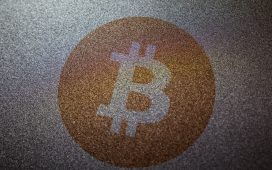
In a recent announcement by the Ethereum Foundation, the Ethereum blockchain network is set for a major enhancement through the introduction of Dencun. The foundation elaborated that Dencun is scheduled to launch on the Sepolia network at epoch 132,608 on Jan. 30, 2024, and will subsequently activate on the Holesky network at epoch 29,696 on Feb. 7, 2024.
Ethereum’s Path to Upgrade: Foundation Announces Dencun Timeline, Targeting Scalability Boost
The Ethereum Foundation has published a timeline for the upcoming Sepolia, Holesky, and Dencun milestones. Dencun’s most notable introduction is Proto-Danksharding, a groundbreaking concept aimed at future scalability enhancements. This innovation is expected to optimize gas fees significantly, making transactions more cost-effective for users. The upgrade also focuses on improving the network’s modular scalability, an essential aspect of Ethereum’s expanding ecosystem.

Following successful activations on Sepolia and Holesky, Dencun will be scheduled for deployment on the Ethereum mainnet. This step is crucial, as it signifies the transition of the upgrades from the testing phase to real-world application. Ethereum developers and users have eagerly anticipated this final deployment, as they believe it will mark a new era for the smart-contract-centric layer-one (L1) blockchain network.
You’ve probably been hearing a lot about “EIP-4844” and “blobs” and “proto-danksharding” lately.
This is because the next Ethereum upgrade, Dencun, includes EIP-4844 & should go live on mainnet sometime in March.
If you want to learn more, head here: https://t.co/L5uFhYLAEA
— sassal.eth/acc
(@sassal0x) January 26, 2024
The foundation’s blog post explains that Dencun encompasses changes to Ethereum’s consensus and execution layers. The upgrade includes several key changes like EIP-4844 for Shard Blob Transactions, which will help in reducing layer two (L2) transaction fees. Other important updates include EIP-1153 for transient storage opcodes and EIP-4788, which introduces Beacon block root in the EVM.
By reducing transaction costs and improving speed, Dencun aims to make Ethereum more accessible and user-friendly. This, in turn, could lead to increased adoption and enhanced utility of the Ethereum blockchain across various sectors. Ethereum has been dealing with significant competition as L1 blockchain networks with smart contract capabilities have been hot on the network’s heels. Nevertheless, Ethereum continues to exhibit resilience and retains a dominant position in the decentralized finance (defi) sector.
What do you think about Ethereum’s Dencun upgrade? Share your thoughts and opinions about this subject in the comments section below.












